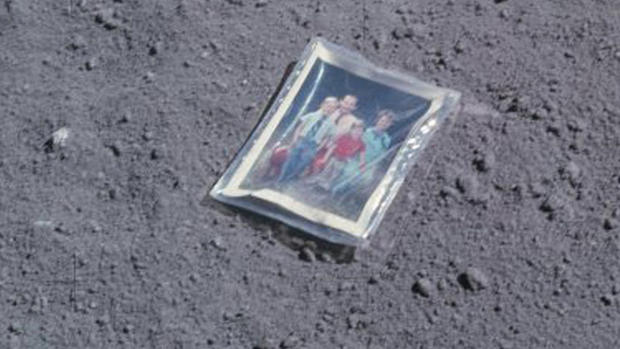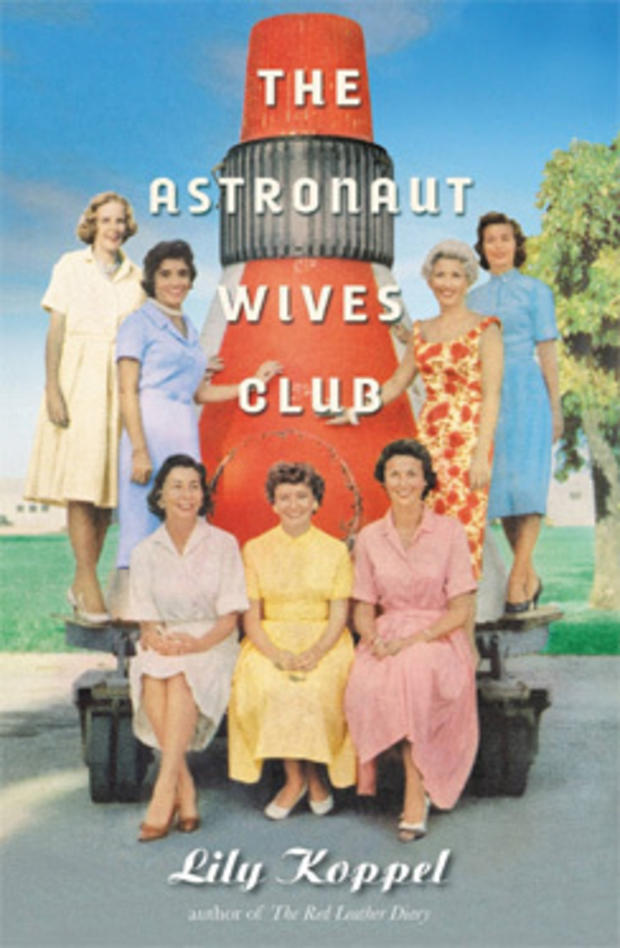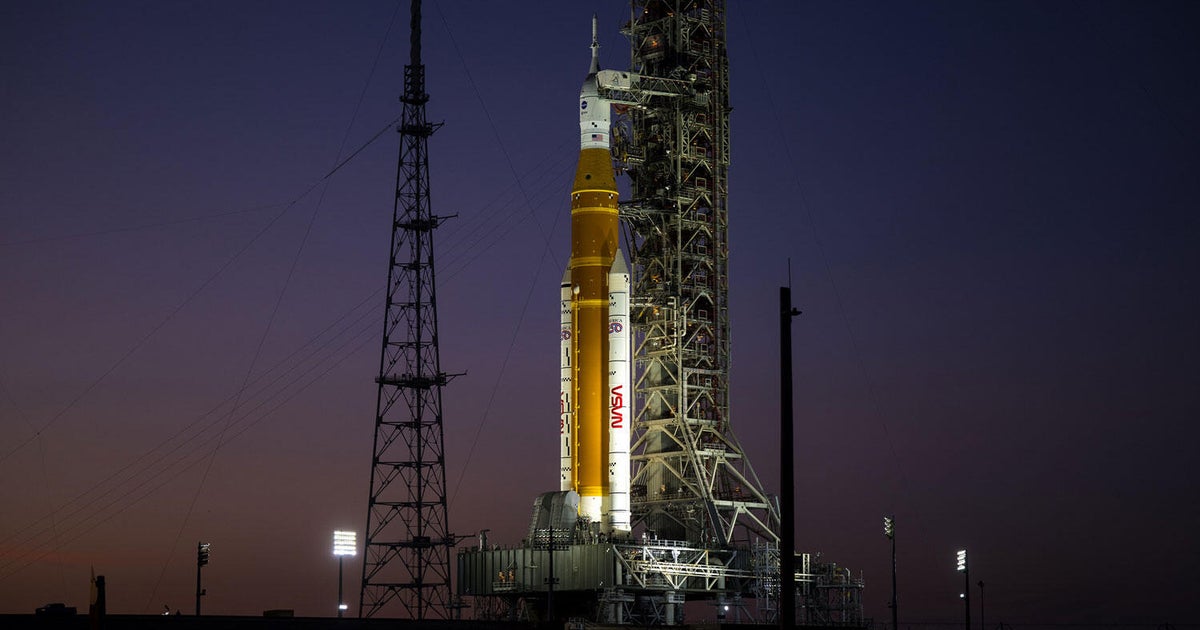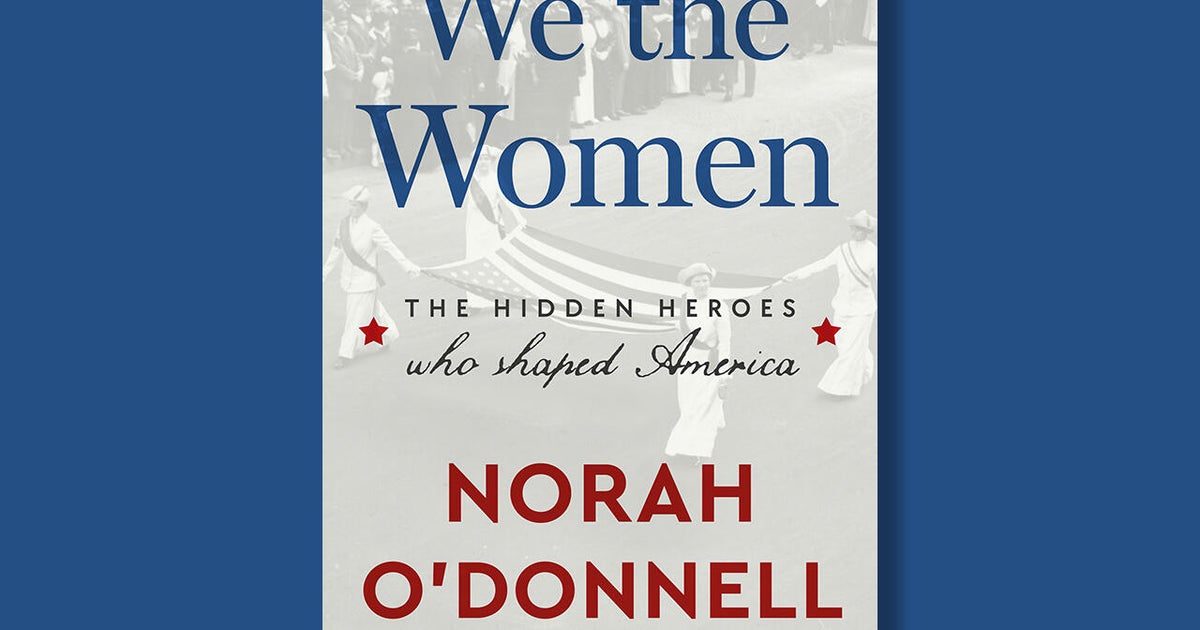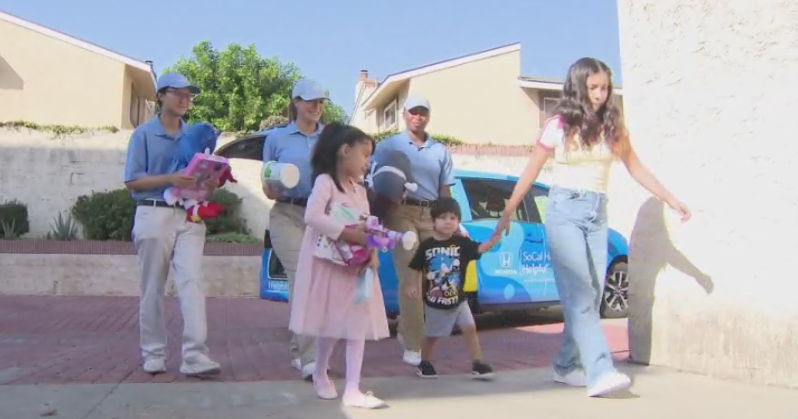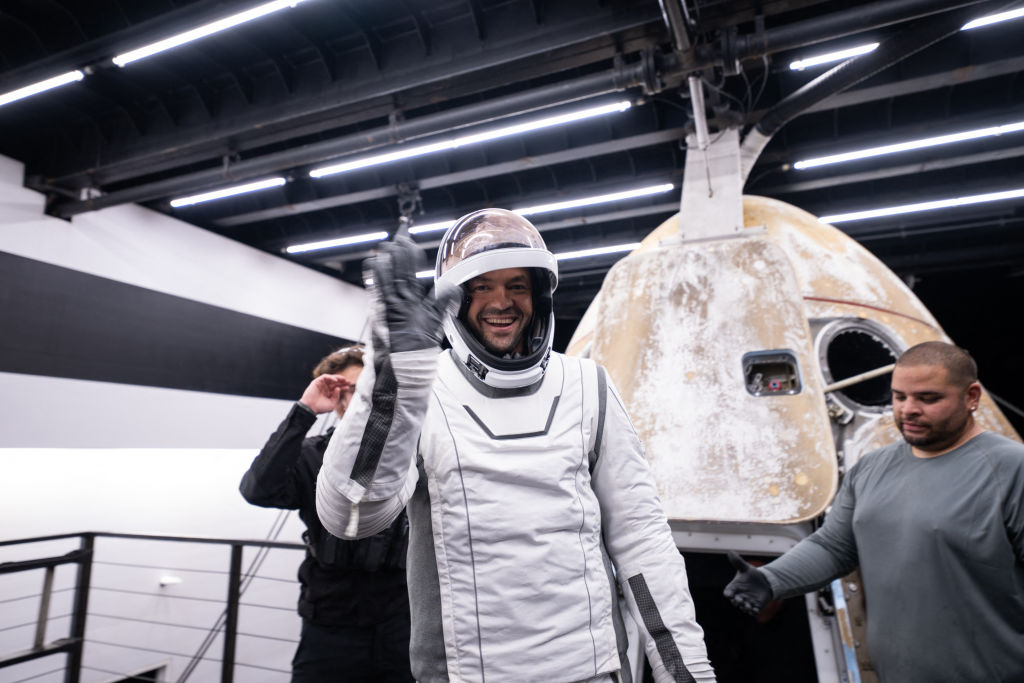Astronaut wives: The other space pioneers
(CBS News) What was happening back on Earth with the families of America's astronauts never got as much public attention as the astronauts' exploits up in space. But now the wives of those explorers are finally getting their due, as Lee Cowan explains in our Cover Story:
It ranks among our greatest human endeavors -- going to the moon.
It was a staggering feat of engineering -- but that carried with it astronomical risks.
The men of NASA's Mercury, Gemini and Apollo programs were national heroes -- a few even became icons.
But they were husbands, too -- most of them fathers -- and the wives who stayed behind while their OTHER halves explored OTHER worlds -- were part of a sisterhood with an orbit all its own.
"I think we girls all shared something that no other group of women shared in history," said Marilyn Lovell. She was in the headlines right along with her husband, astronaut Jim Lovell.
He was the command module pilot on Apollo 8 -- the first to go around the Moon -- on Christmas Eve, 1968. But Apollo 8 isn't why they make movies about Jim Lovell.
His heroism -- later depicted by Tom Hanks -- helped avoid disaster aboard Apollo 13.
An explosion not only killed their chances of landing on the Moon, but threatened to kill the crew, too.
It was a made-for-Hollywood drama -- but it was no movie to Marilyn.
For four days in April 1970, every agonizing moment of her husband's dire situation was playing out not only in her living room, but across the country.
NASA expected her -- and all the wives -- to be as calm and brave as the astronauts themselves. And for the most part, they were.
"As the years went on I thought, 'What would I have done if I had become a widow?'" Marilyn said.
"Did you talk about it as a couple, in terms of the danger of it all and the fact that you had a family? Or was it unspoken?" asked Cowan.
"I think it was unspoken," Marilyn replied.
Jim Lovell agreed: "This was the business I was in, and she became my wife and she understood the business I was in. And that was it."
From his earliest days as an astronaut, his career came first. Even when she found herself pregnant, Marilyn Lovell hid it for 4 months, knowing it might ruin her husband's chances of going to the Moon.
"I went, 'Let's see, four months, five, six, seven -- you're gonna be having the baby when I'm in space! Don't say anything!" Jim Lovell laughed.
If it sounds like the astronaut version of "Mad Men," it was, says author Lily Koppel: "They weren't being flung into space, but they were dealing with the stress of having their husbands ride up on this giant rocket where no man had ever gone before, and also the sort of projecting the perfect American family image to the rest of the world."
She's compiled many of those very real wives' tales in a book called "The Astronaut Wives Club."
"I mean, these were the most exhilarating of times, and they were also the most terrifying," said Koppel. "And each women I think, dealt with the mission of having a husband in space on her own terms."
In the late '60s, the wives -- like Sue Bean, once married to Apollo 12 astronaut Alan Bean -- used to live close to one another, in a neighborhood outside Houston that was a kind of "space suburbia."
"I became pretty independent, living by myself with the children," said Sue Bean. "Because the fellas didn't have time to do the checkbook, they didn't have time to do the yard very often. There was too much training."
Their husbands were rarely home -- and when they were, many of the wives knew they were competing with the Moon for attention.
"He always would say to me, 'If they didn't pay me anything, I'd do this job, I love it so,'" said Sue.
Cowan gathered Sue together with three other "Astrowives": Jeannie Bassett Robinson, who had proudly been astronaut Charlie Bassett's wife; Jane Dreyfus, once married to Pete Conrad, the third man on the moon; and Barbara Cernan Butler, the former wife of Gene Cernan, the LAST man on the Moon.
Barbara Butler said, "There were certain things you couldn't do. You couldn't go outside in your bathrobe. You had to be dressed, and you had to have your makeup on and your hair combed. . . . And you couldn't drink too much!"
Jane Dreyfus said there was pressure to be "the perfect American family." "Oh, I think we knew we had to be, 'cause we didn't want to have anything upset our husband's flights." They were also very competitive: "Uh-huh. We had to be, yes. Because we all wanted our husbands to be the first, or at least we wanted them to be up there at the top of the list."
"And a good, happy marriage sort of ensured where you were in the flight line?" asked Cowan.
"It would certainly help," Dreyfus replied.
"Was that hard? I mean, were you always sort of watching your Ps and Qs?"
"Well, we were perfect! What'd you expect!" laughed Barbara Cernan Butler.
They can laugh about it now -- but the stress of knowing (or sometimes NOT knowing) the danger their husbands were in took a toll each and every day.
Dreyfus said the wives would try to not have arguments, "because you wouldn't want to have him go off and be killed and you'd left on that note of being in an argument. You never would argue."
"So that was consciously in your mind?" Cowan asked.
"Absolutely, always in the back of my mind," Dreyfus said. "We were not inured to accidents, but we knew they would happen. I mean, we were expecting them to happen."
As Jeannie Bassett Robinson concurred, "The fear was always there."
And how did they deal with that? "You face it," said Robinson. "You have to cope with it."
She learned to cope early. Her husband, Charlie Bassett, was training for Gemini 9 when he died in a plane crash along with fellow astronaut Elliot See.
The first people at Jeannie's house that day weren't from NASA; they were other wives.
A year later, another tragedy: In January 1967, the three-man crew of Apollo 1 was killed when a fire tore through their capsule during a routine test.
Again, it was the wives who raced to each other's side.
"The guys were supportive, but the wives were just there," Robinson said. "[Their] presence means so much to them. I mean, we were really close."
But while the wives have remained close to this day, most of their marriages fell apart.
"We were just young and inexperienced and not ready for a lot of it, so I think that it took a real toll on, I'd say, the majority of our marriages," said Barbara Cernan Butler.
In fact, only a handful of astronaut marriages lasted. Jim and Marilyn Lovell just celebrated their 61st anniversary this month.
The Moon may have gone to his head, but it went to his heart, too. He actually named part of the moon after Marilyn: "Mount Marilyn, right there on the coast of the Sea of Tranquility," said Lovell.
And then there was the Christmas present he sent to her doorstop while he was still in space.
"I opened it, and it was a mink jacket, with a little card in there saying, 'Merry Christmas from the man in the Moon,'" recalled Marilyn.
"No guy is ever going to be able to top that, you realize that?" said Cowan.
"I have to admit, that was classic," Jim laughed.
Among all those mid-century images of dutiful wives watching their husbands rocket to glory, the wives of Apollo 12 perhaps summed it up best: Despite all the trials and hardships the wives endured, being a part of the space race still left them feeling "Proud, Thrilled and Happy."
For more info:
- "The Astronaut Wives Club: A True Story" by Lily Koppel (Grand Central); Also available in eBook, Audio CD, Downloadable Audio and large print formats
- Read an excerpt | Reading group guide (pdf)
- astronautwivesclub.com
- Lily Koppel's Tumblr page
- Interviews in Houston were filmed at the Hotel Zaza, formerly the Warwick, home of the astronauts' "Moon Ball"
- NASA's history website
- Lovell's of Lake Forest
